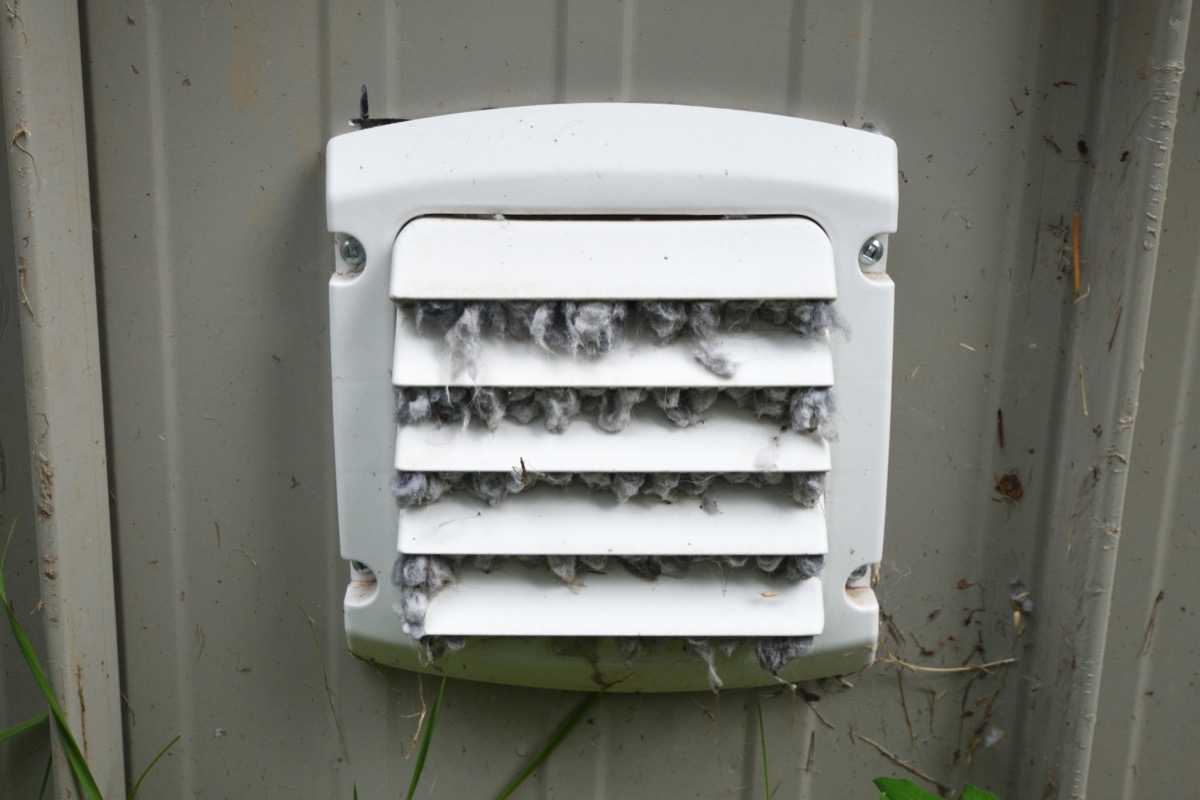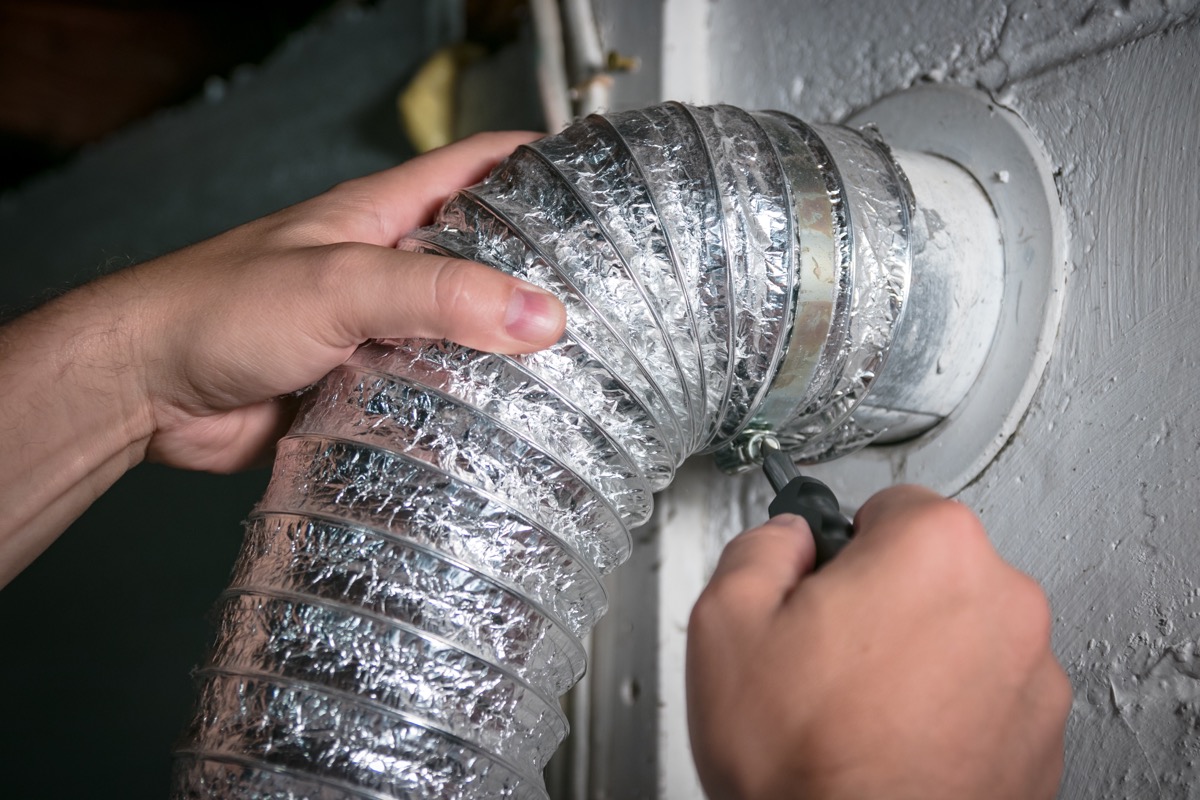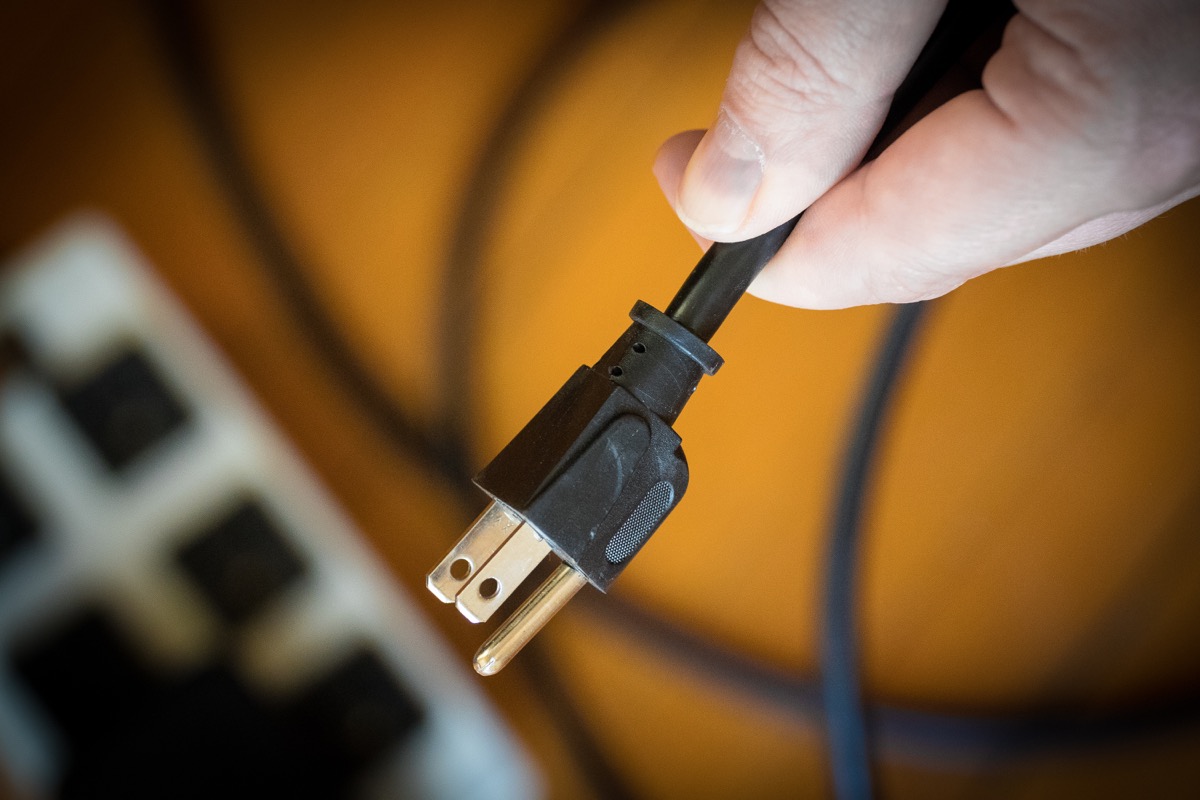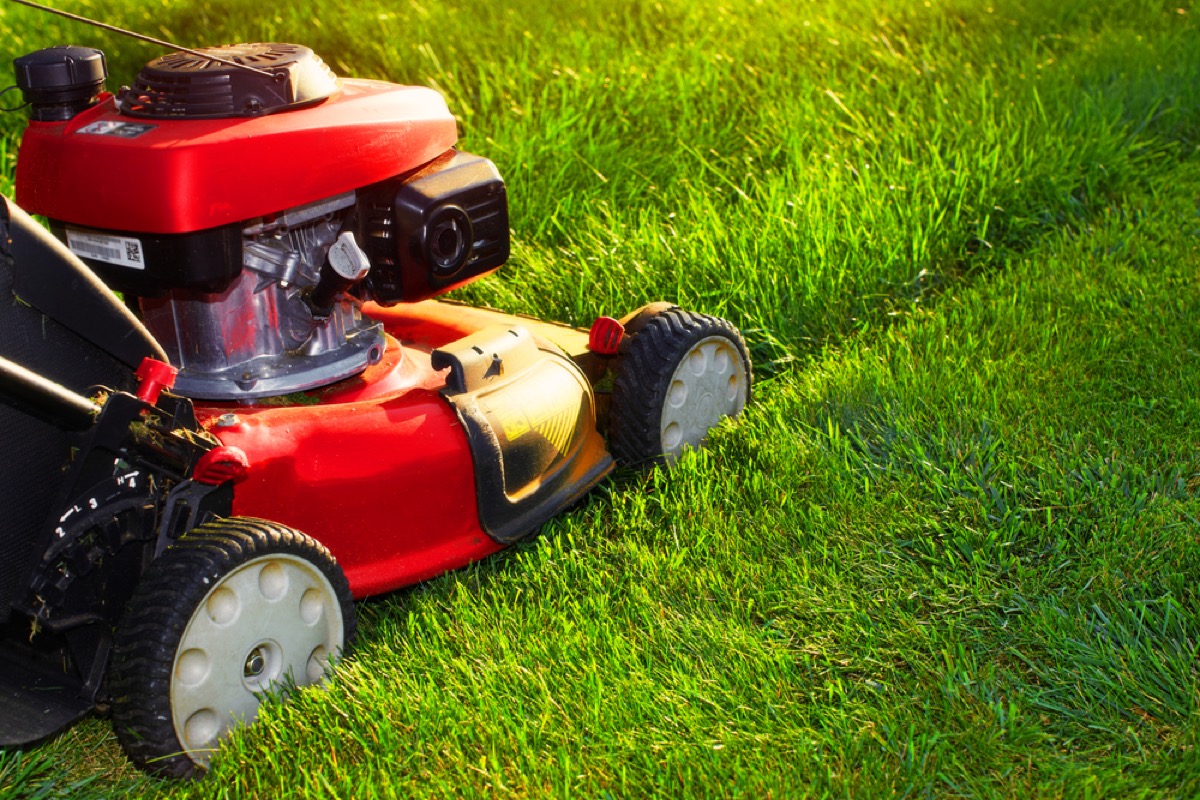If You See This in Your Basement, You’re at Risk for a Fire, Experts Say

Approximately 1.3 million house fires take place in the U.S. each year, claiming over 3,500 lives and injuring more than 16,000 people. And while the bulk of house fires start in the kitchen, any room with a heat source in it—like your basement—is the next most likely space in which a fire will start. If you want to prevent a house fire, read on to discover what experts say you should be looking out for in your basement to stay safe.
RELATED: 5 Things You’re Buying That Bring Bed Bugs Into Your House, Experts Say.
1
Dirty dryer vents

You may clean your dryer’s lint trap regularly, but if you’re not cleaning your vents as well, you could be setting yourself up for serious damage to your home.
“If you have a lot of loose, dry lint in your dryer vents and the dryer overheats, you can get a flash fire,” says Chuck Roydhouse, a former professional firefighter, president of the Chimney Safety Institute of America (CSIA), and owner of Clean Sweep of Anne Arundel County. He recommends getting your dryer vents cleaned by a certified technician on a regular basis.
2
PVC dryer vents

Also, if your dryer vent is made of something other than metal, it’s in your best interest to have it replaced ASAP—because if you don’t, you may be setting yourself up for a fire.
“If lint ignites and you have a flash fire inside of the flexible tube that leads from the dryer to the hard pipe venting system going through the wall or the ceiling, if it’s not metal, it will deteriorate very quickly,” says Roydhouse.
And you can’t tell if a vent is metal just based on its silver color. “If your dryer vent is PVC coated—like the white accordion covers that you use for venting bathroom exhaust—that’s not rated for dryer vents. And Mylar, the aluminum foil looking dryer vents you often see, melt almost immediately in a flash fire.”
For the latest home safety news delivered straight to your inbox, sign up for our daily newsletter.
3
Extension cords

And if your basement appliances are plugged into extension cords rather than directly into outlets, you could have a fire risk on your hands.
“Many basements will have washers, dryers, and other large appliances. Be sure to plug these into a wall socket and not an extension cord,” says fire safety expert Ray Brosnan of Brosnan Property Solutions. “These extensions can overheat and overload, which can in turn lead to a fire in seconds.”
4
Paper and cardboard

Keeping things that easily set alight, like paper or cardboard, near your basement ducts or appliances could spell trouble in your future.
“You want to make sure you have the right clearance to combustibles, meaning you’re not storing any Christmas trees or boxes near any of the ducting or piping coming from the furnace or boiler,” says Roydhouse. “If combustible items are kept close, they could heat and catch fire.”
5
Gas-fueled appliances

While you may think little of storing your gas-powered lawnmower or leaf blower in your basement, doing so could be putting everyone in your household in harm’s way.
“You don’t want to store any fuel source or fueled-up equipment in the basement because you have off-gassing that takes place as it evaporates,” Roydhouse says.
“Once that finds an ignition source—like a water heater, a furnace, a spark from a light switch—you can have a fire or an explosion,” Roydhouse explains.
RELATED: If You See This in Your Yard, Prepare for a Bug Invasion, USDA Says.